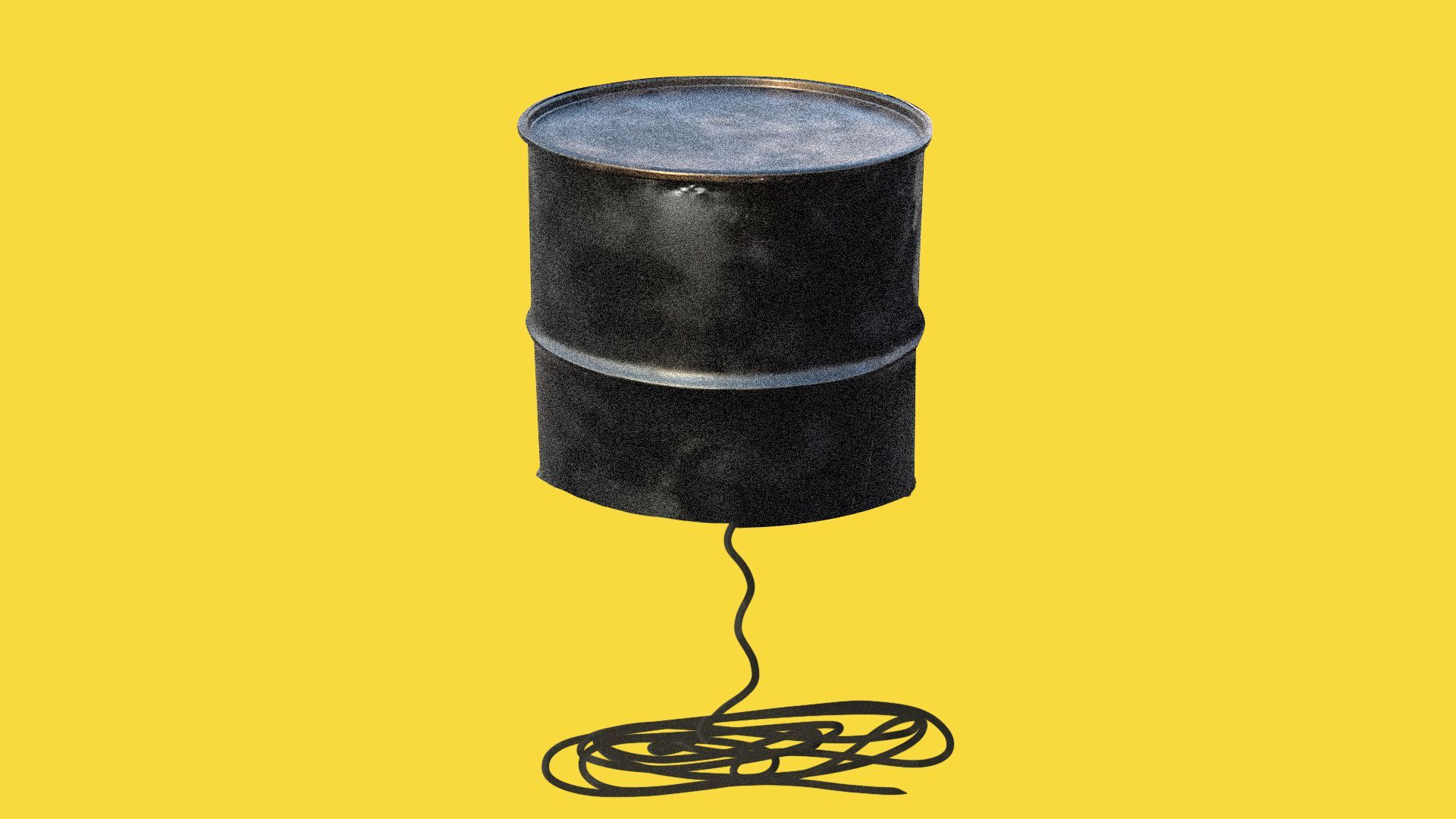Russia oil shock could turn into "biggest supply crisis in decades"
Add Axios as your preferred source to
see more of our stories on Google.

Illustration: Aïda Amer/Axios
Russia's war on Ukraine could bring a "global oil supply shock" as buyers shun Russian energy and sanctions indirectly hit exports too, the International Energy Agency said Wednesday.
Driving the news: Three million barrels per day of exports could be shut-in as of April, and "losses could increase should restrictions or public condemnation escalate," IEA's monthly oil market report said.
Why it matters: Russia is the world's largest combined exporter of crude and petroleum products.
- Global commercial oil inventories are already tighter than average and OPEC+ is sticking with only modest output increases for now.
- Only Saudi Arabia and the United Arab Emirates can significantly boost production fast, but are "showing no willingness" yet, IEA said.
- "[G]rowth will come from the U.S., Canada, Brazil and Guyana, but any near-term upside potential is limited," IEA said.
What's next: The wider commodity price surge and sanctions are slated to "appreciably depress" global economic growth, the report finds.IEA cut almost 1 million barrels per day from its 2022 oil demand growth projection. But the outlook "remains highly uncertain."
Catch up fast: Current sanctions don't directly hit Russian energy exports, and countries in Europe — Russia's largest market by far — have not followed the U.S. ban.
- But IEA notes that "major oil companies, trading houses, shipping firms and banks have backed away from doing business with the country."
The big picture: "Faced with what could turn into the biggest supply crisis in decades, global energy markets are at a crossroads," IEA said.
- The agency sees both challenges and opportunities. "[T]oday’s alignment of energy security and economic factors could well accelerate the transition away from oil," IEA said.
